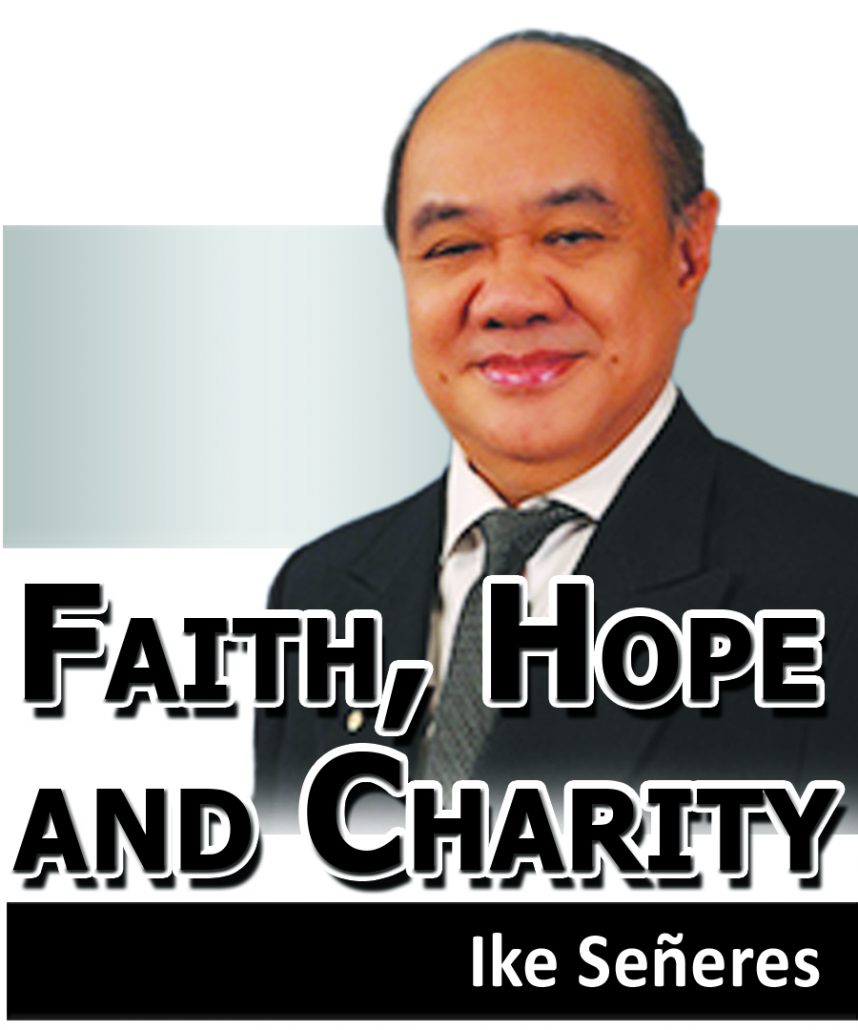 AS FAR AS I can remember, my late brother, former Ambassador and Congressman Roy Villareal Seneres was the only public official who kept talking about empathy or the need for empathy in dealing with others, particularly in dealing with the general public.
AS FAR AS I can remember, my late brother, former Ambassador and Congressman Roy Villareal Seneres was the only public official who kept talking about empathy or the need for empathy in dealing with others, particularly in dealing with the general public.
Although it sounds like a profound word, the dictionary defines empathy as “the ability to understand and share the feelings of another”. I am very sure that empathy does not necessarily mean sympathy, but it seems to me that both words are closely related to the vernacular word “malasakit”.
Perhaps it may just be a play of words, but sharing the feelings of another is about the same as feeling what another person would feel. That may mean putting oneself in the shoes of another and if that is so, that may also mean having a lot of humility, because the other person might be lower than our station in life.
In contrast to the behavior of my late brother, I have seen the behavior of many public officials past and present, who does not seem to have any empathy in dealing with the general public, as if they do not owe anything to the general public, and as if it would be too much of a burden for them to do any form of service to the general public.
God forbid, I hope that these people are not graduates of state universalities and colleges; otherwise they would have forgotten that they owe the people for having given them the education that has elevated them to their present station in life.
God forbid, let no one make the mistake of calling them public servants, otherwise that would be the overstatement of the century. But wait! Is empathy really something that we can teach in school? Is it not something that we should first learn from our parents?
As I have previously written in my newspaper columns, a citizen is also a customer who is also a voter and a taxpayer. If these four capacities are not enough reasons for any public official to serve anyone in the general public with a mega doze of empathy, I do not know what will.
On the other hand, I would even think that any public official who fails to treat anyone with empathy should either be disciplined four times, or be meted with quadruple punishments.
On second thought, that may be too harsh and instead let us just spend our energies with recruitment or retraining programs that would increase the emotional quotients (EQs) of public officials. Either that or we can develop Customer Relations Management (CRM) programs that could possibly institutionalize customer friendly practices in government agencies.
From the corporate perspective, CRM programs could either be classified as “voice” and “non-voice”, the latter a catch all term that includes electronic mail, text messages, Facebook, Twitter and LinkedIn, among others. Either way, what is important is that an agent should be able to reply or answer within a few minutes, at worst within a few hours.
Being unable to do so and delaying response to a few days would be sign of poor CRM. It seems, however, that this challenge is easier said than done, because many government agencies and even private companies are struggling to make this happen.
Generally speaking however, it would be best to consider outsourcing options. Slowly but surely, some private companies are already using artificial intelligence (AI) in the form of chat bots.
Even if technologies are available to improve public services, it would be a waste if empathy does not accompany the delivery of these services. There is, however, a higher concern in relation to this issue and that is the issue of public equality. Without good and efficient CRM, the poor people are placed at a disadvantage because unlike the rich people, the poor do not have the right connections that are usually needed in order to avail of these services.
My wish actually is that by way of good and efficient CRM, no one needs to know anyone who could help them avail of public services. They do not need to know anyone, as long as they know how to talk on a phone or to type words into a device.
On the upside, President Rodrigo Roa Duterte is clearly on the side of the people when he says that he wants people to be happy about public services, and that he wants to remove or reduce the long lines usually seen in government agencies. (iseneres@yahoo.com/PN)





